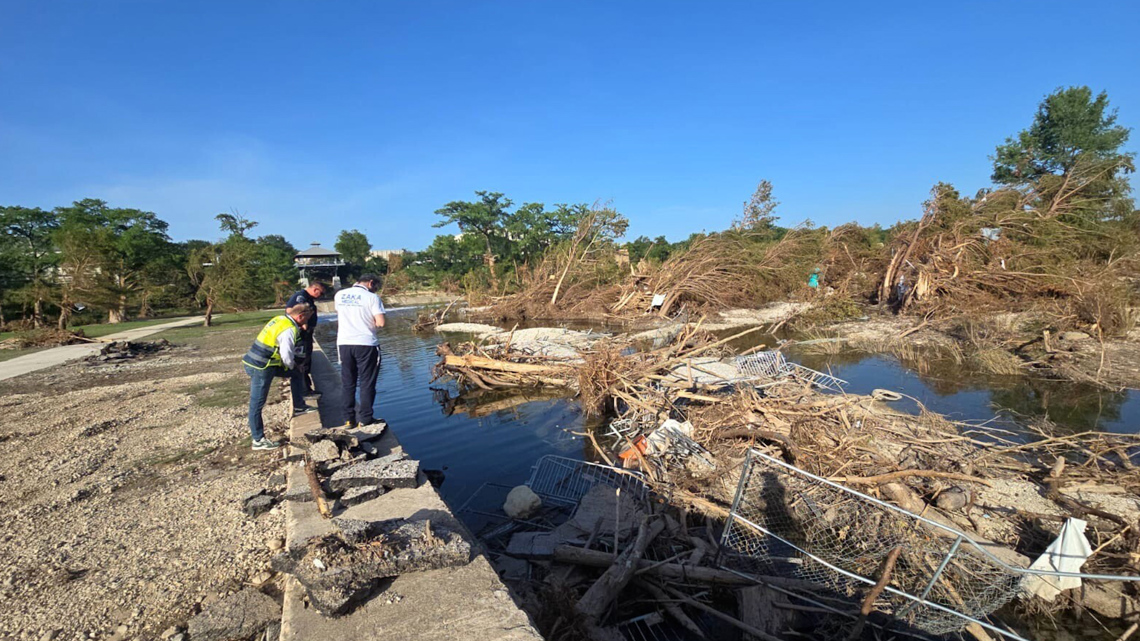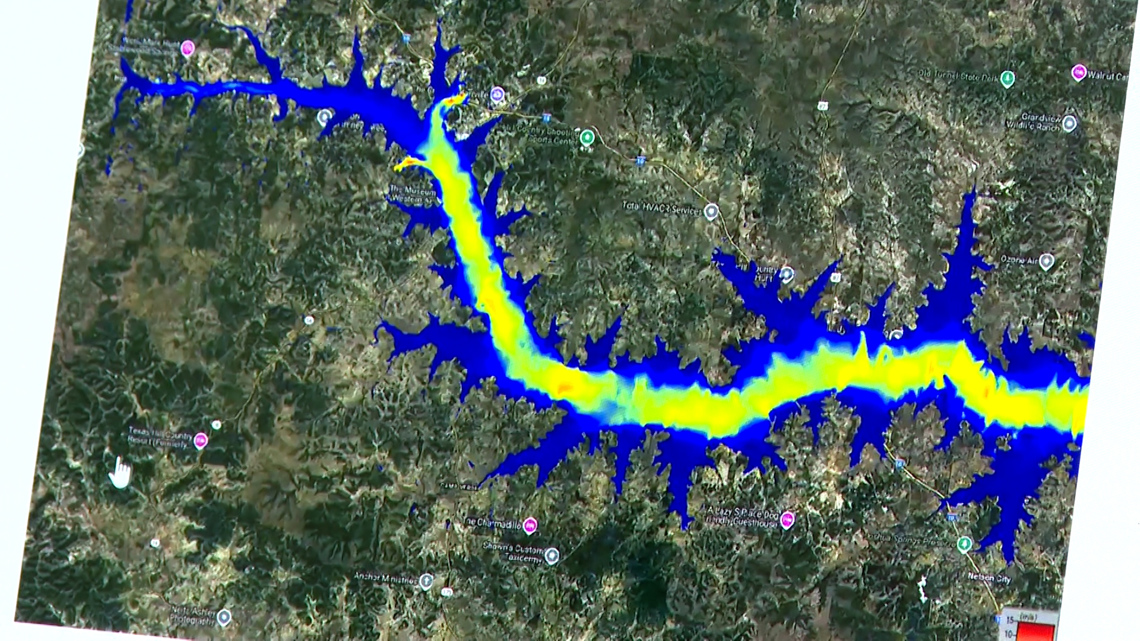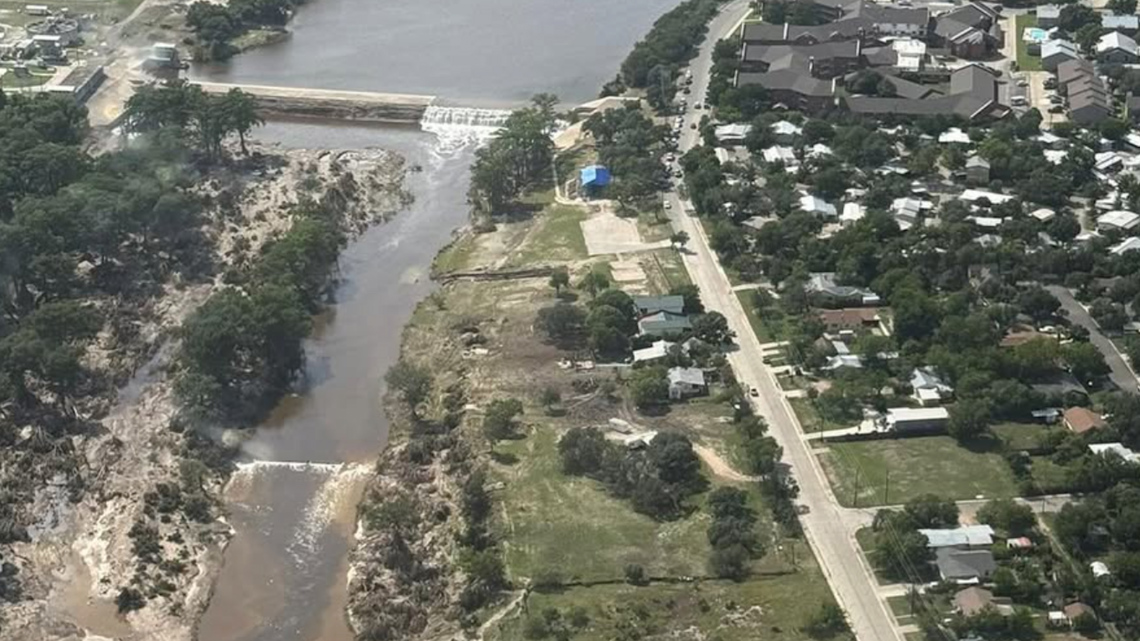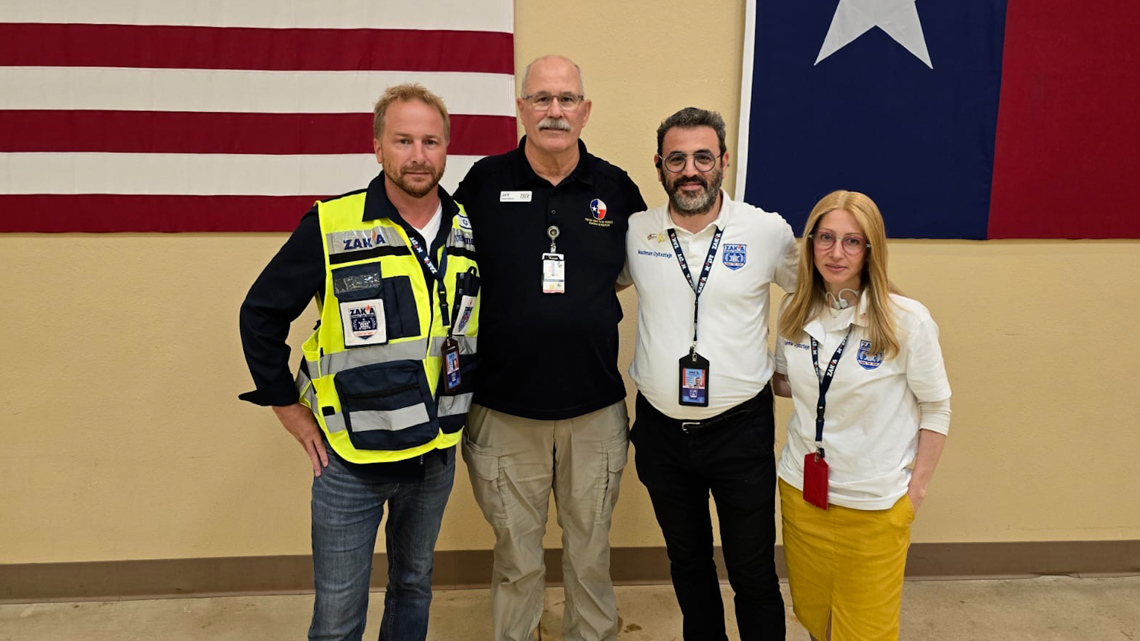Israeli rescue team ZAKA uses AI-driven flood modeling to aid Kerrville, Texas, in locating flood victims, honoring the dead and fostering interfaith collaboration.
KERRVILLE, Texas — A world-renowned Israeli search and rescue team is on the ground in Kerrville, using high-tech modeling and centuries-old traditions to aid in the search for flood victims in the Texas Hill Country.
ZAKA Search and Rescue, a volunteer-based, interfaith rescue and recovery organization, deployed from Israel after witnessing the devastation on television. Despite their homeland being at war and commercial flights severely limited, ZAKA leaders say they felt compelled to come.
“We just knew we had to be here,” said Marnix Van Ede, ZAKA’s Director of International Relations. “The United States is our strongest ally and this is just a small way we can express our thankfulness.”


ZAKA, which has been operating for more than 30 years, is known for responding to tragedies around the world—from 9/11 to Surfside to the earthquakes in Turkey. This time, they’re partnering with Texas first responders to use advanced flood simulation technology to help identify where victims may have been swept away.
“It had to do with hydraulics and the technique of calculating where victims might have moved to,” Van Ede said. “That’s being done with the newest technologies that work based on simulations. It directs us to clues that a regular human being may not have thought of.”
The technology—developed by Professor Barak Fishbain at the Technion-Israel Institute of Technology—analyzes flood dynamics based on terrain features, elevation, water velocity and local geography. Using data provided by Texas emergency officials, the ZAKA team refined their models to prioritize search zones.


“The computer can calculate directions where the victims may have drifted off to,” said Van Ede. “It also has to do with AI calculations and simulations.”
Valerie Dyksztejn, ZAKA’s International Deputy Commander and a software engineer, manages the technical aspects of the mission, including the computer simulations. Due to the sensitive nature of the data, Dyksztejn could only share certain models, as others contained classified information about specific victim locations.
Despite the absence of a Jewish community in Kerrville, ZAKA was embraced by locals. A synagogue in San Antonio connected the team to a Rabbi, who arranged daily deliveries of Kosher meals. Community members also offered housing during the team’s stay.
“The Texan hospitality is incredible,” said Van Ede.
On-site coordination is led in-part by Nachman Dyksztejn, ZAKA’s International Commander. He says the team arrived with technical equipment and decades of experience—but above all, a mission grounded in dignity.


“First of all, to save lives,” said Van Ede. “But with the unique feature to recover victims and to honor the dead.”
ZAKA volunteers stress that recovery is not just physical—it’s spiritual.
“From a Jewish perspective, it is very important the person has a proper burial,” Van Ede said. “The biggest honor you can give, in Jewish tradition, is to honor the dead. It is also closure for families of the victims.”
ZAKA includes 4,000 volunteers in Israel and 2,500 more around the world. Their work is interfaith and international.
“On our teams we also have Christians, we also have Muslims—and every tradition has its own way of honoring the dead,” said Van Ede.
Despite current attacks from Iran, Lebanon and unrest inside Israel, ZAKA leaders say their commitment to humanity outweighs borders or politics.


“We’ve been to Turkey—even, which is not Israel’s biggest friend always,” said Van Ede. “ZAKA is there to help anyone.”
The group aspires to launch a global initiative called ZAKA Menorah, aimed at setting up interfaith emergency response teams that can act quickly—without being bound by bureaucracy or diplomacy.
ZAKA says they’ll remain in Texas as long as needed, and they hope the models they’ve built—and the partnerships they’ve formed—will serve as a blueprint for fast, coordinated response to future disasters.
